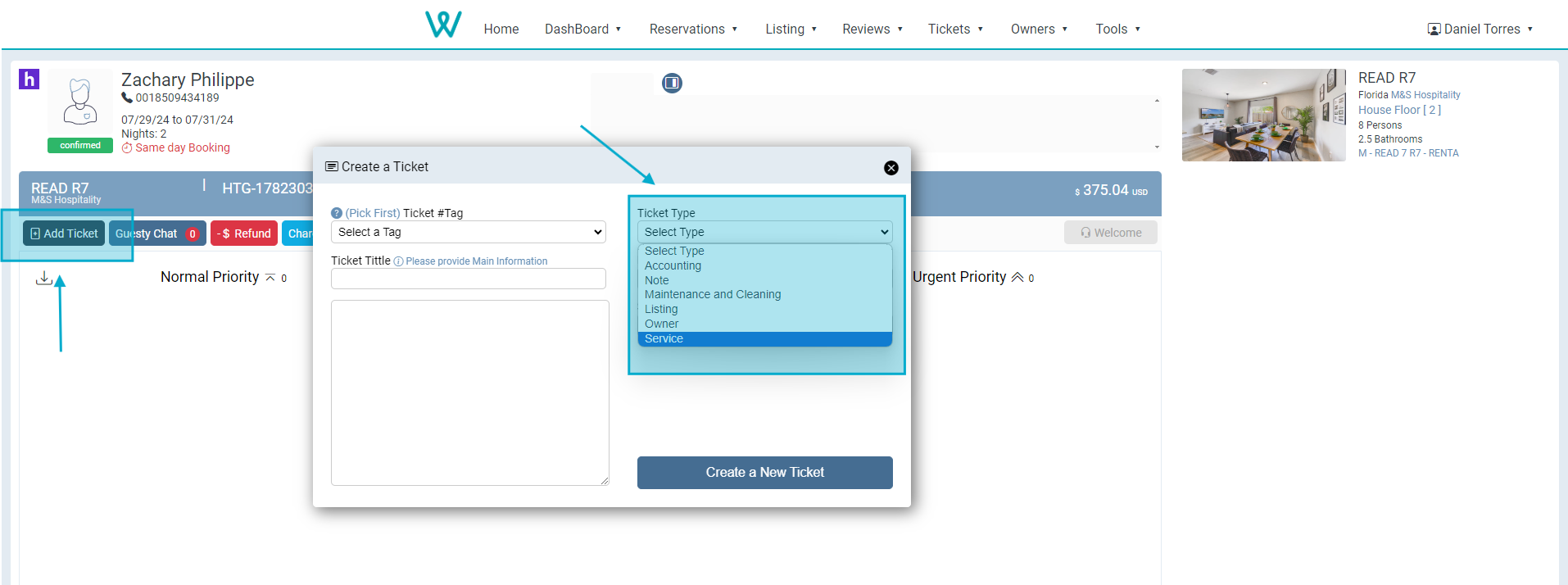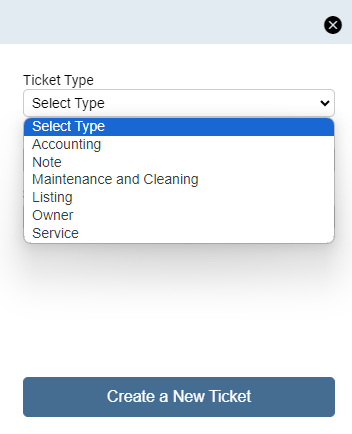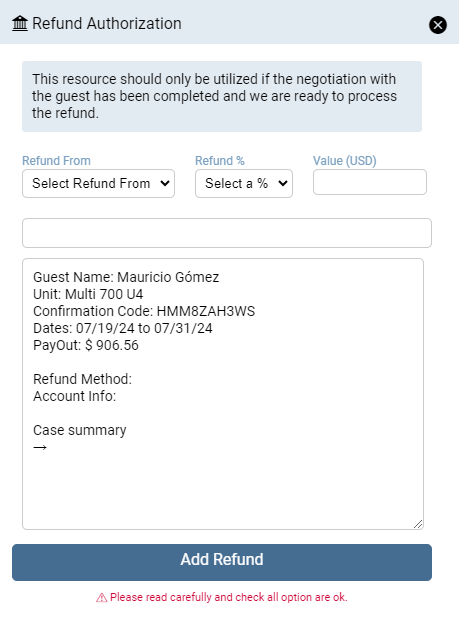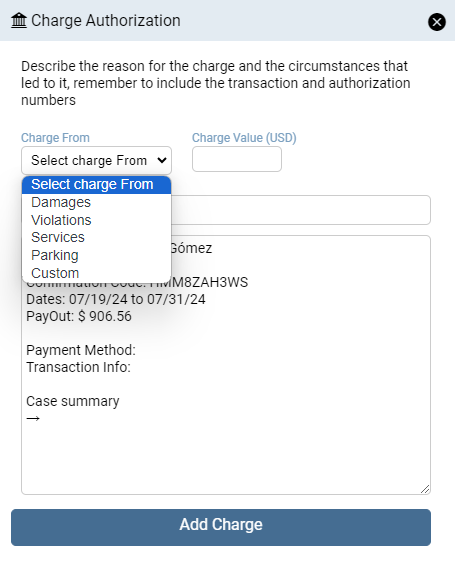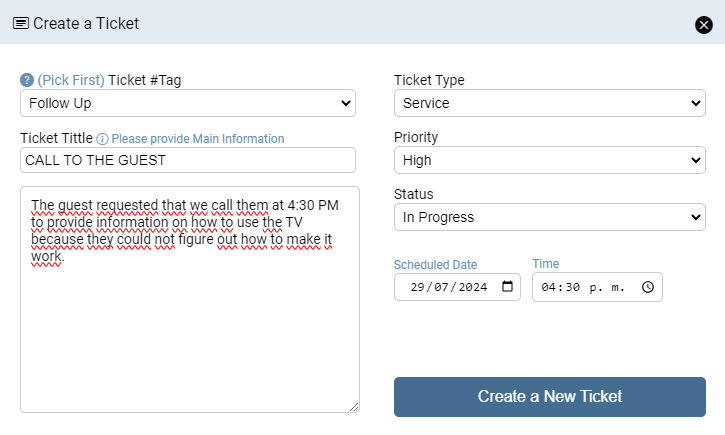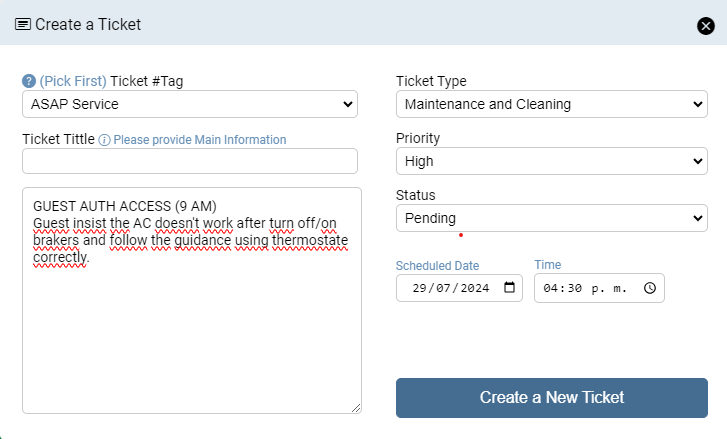Ticket Types
Discovering how to use the types of tickets in the CRM correctly.
Last Update: July 2024
Objective
- Understand the different types of tickets and the situations in which they should be used.
Best practices for creating tickets on CRM.
Please keep in mind that:
-
- All interactions with guests must be recorded in a ticket.
- Interactions should be consistent with the ticket; use the comments to maintain a single thread of conversations.
- Using # tags correctly is very important for tracking.
-
Read the ticket history before creating a new one; it is possible that a ticket on that topic has already been generated.
-
If you create a ticket, follow up until it is closed. Always check your created tickets to provide immediate updates on the ticket status.
Making a Ticket
Tickets are associated with each reservation, which means that the event where tickets are presented or can be created is within a reservation. Understand that a reservation can have different statuses, but regardless of this status, an agent can create a ticket by simply clicking the black button labeled "Add Ticket."
This will display the form and dialog to create the ticket.
Ticket Types
What should I know about the tickets?There are 6 types of tickets that can be created in the CRM, each with special characteristics and specific uses. Tickets can be created for Accounting, Notes, Services, Maintenance and Cleaning, Owner, and Listing. It is very important to know exactly what type of ticket needs to be created, as each type of ticket is sent to the corresponding department for handling. If you believe you have created a ticket by mistake, inform your manager of the ticket number, which can be found on the ticket itself, and create a new ticket. |
Accounting Ticket
These are tickets related to accounting, which need to be taken into account by accounting to perform an action that only they can do, especially tickets related to refunds or additional charges. They are also related to events that may result in the shortening of the reservation or its cancellation, which implies some kind of refund to the guest.
When to use:
- An accounting ticket will be created automatically when the Refund tool is used in the action bar of the guest reservation window.
- An accounting ticket will be created automatically when the Charge tool is used in the action bar of the guest reservation window.
Only the front desk manager or the lead agents with permission in the CRM can access these tools.
Special Accounting Tickets (Refund / Charge)


Note Ticket
This type of ticket is characterized by being purely informational; it does not involve any actions that need to be executed in the future. For this reason, when you select the Note type in the CRM, the dialog that requires you to enter a date and time for task scheduling is not displayed. Use this type of ticket for important information that we need to know about the guest.
Service Ticket
These tickets are very special; they involve an action that needs to be executed by a person, department, or procedure at a specific time on a specific date and do not involve the cleaning and maintenance department.
These tickets are generally accompanied by a tag that clearly identifies the service being referenced.
The time in the scheduled date and time should be the time at which the service needs to be executed. We must always adhere to these schedules; there can be no excuses for failing to meet the proposed time if there is no valid reason in the comments of the ticket for not doing so.
Maintenance and Cleaning Ticket
These tickets are exclusively for reporting maintenance or cleaning issues and are designed to be addressed based on their urgency. Tickets are directly synchronized with Breezeway, the program used by maintenance and cleaning teams to coordinate tasks for their teams. It is required to have a date by which the guest needs to be assisted; this date should be the deadline or maximum date by which the guest should be attended to.
It is important to note that before creating a ticket requesting assistance, you must follow the service protocol, trying to resolve more trivial issues directly where possible, such as the correct use of the TV or appliances, resetting the breakers to ensure the AC works properly, and other activities that can solve common problems without necessarily requiring maintenance intervention until those resources have been exhausted.
Always confirm with the guest, after exhausting basic attempts at assistance, if they authorize us to access the unit while they are in it, confirming the time when we can do so.
When should a maintenance ticket be given urgent priority?
When the reported issue prevents the guest from continuing their stay, such as:
-
-
- Issues with the air conditioning.
- Problems accessing the property, such as damaged or locked-out locks.
- Outages in essential services, such as internet, electricity, or water.
- Leaks, broken pipes, or clogged toilets.
- Problems with critical appliances, such as refrigerators or dishwashers.
- Significant structural damage, such as broken windows, damaged doors, or large glass panels, especially if it compromises the property's security.
-
Please consult maintenance & cleaning department manager for more guidance.
Listing ticket
Whenever a guest reports any misinformation related to the information they saw in the listing and what they found in the unit, a Listing ticket should be created.
For example, if the guest says that the listing stated the apartment was on the 20th floor but it is actually on the 18th floor, or situations where an amenity was included in the listing but is not present at the time of the reservation.
Owners ticket
They are very specific tickets concerning requests that come especially to the front desk from the unit owners, and they are very high priority as we need to give special attention to their requests.
A practical example of this is, for instance, a request to make an owner's reservation or to make some changes to it.


